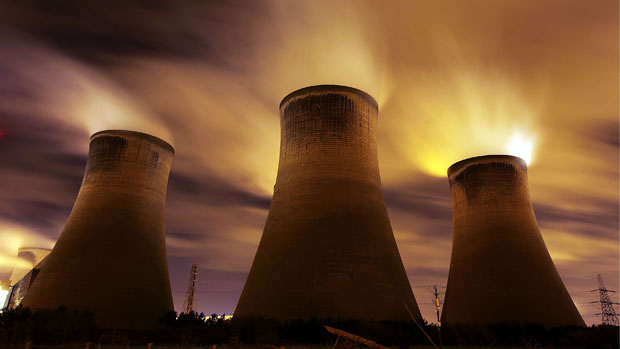IPCC report: 'no one will be untouched by climate change'
UN panel publishes most comprehensive climate change study yet, but will it prove controversial?

A free daily email with the biggest news stories of the day – and the best features from TheWeek.com
You are now subscribed
Your newsletter sign-up was successful
NOBODY in the world will go untouched by the impacts of global warming over the next few decades, a United Nations panel has warned. Members of the Intergovernmental Panel on Climate Change (IPCC) have today published the "most comprehensive climate change study to date", warning that floods, droughts and heatwaves pose a growing threat to humans.
What else did the IPCC report say?The impacts of global warming are likely to be "severe, pervasive and irreversible", says the report, with rising temperatures threatening our health, homes, food and safety. Flooding, storm surges, droughts and heatwaves are among key risks of global warming. Violent conflicts, food shortages and infrastructure damage are also expected to become more prevalent, reports the Daily Telegraph, while a growing number of animals and marine species will face the risk of extinction. The authors say that the negative impacts of climate change on crop yields are already been more common than positive ones.
Who is the IPCC?The panel is based in Geneva and has 12 full-time staff. All the scientists who are involved with it take part on a voluntary basis. Today's report was compiled by more than 300 authors from 70 different countries with contributions from thousands of global experts.
The Week
Escape your echo chamber. Get the facts behind the news, plus analysis from multiple perspectives.

Sign up for The Week's Free Newsletters
From our morning news briefing to a weekly Good News Newsletter, get the best of The Week delivered directly to your inbox.
From our morning news briefing to a weekly Good News Newsletter, get the best of The Week delivered directly to your inbox.
Why is this report so important?The report is the first of its kind to analyse rising temperatures as "a series of comprehensive global risks caused by increasingly perilous levels of carbon dioxide", reports the Telegraph. "Why should the world pay attention to this report?" asks IPCC chairman Rajendra Pachauri. "We have assessed impacts as they are happening, impacts on natural and human systems on all continents and oceans." Based on these findings, "nobody on this planet is going to be untouched by the impacts of climate change", he says. It was seven years ago that the IPCC issued its last major report, which was widely attributed with fuelling a shift in global climate change policies.
Is this report likely to cause controversy?The reputation of the 2007 report was partly tarnished by accusations that it contained several mistakes. Members of the panel admitted, for example, that a claim that Himalayan glaciers could melt away by 2035 was unfounded. This was seen as proof of bias by climate change sceptics. One author has already pulled his support from today's report. Professor Richard Tol, from the University of Sussex, asked for his name to be removed from the study's summary last week because he believed it was too "alarmist" and included "silly" statements about the vulnerability of people in war zones to climate change, reports the Financial Times. However, Professor Chris Field, from Stanford University in California and co-chairman of the panel, has suggested Tol was upset because his research had not been better represented in the summary.
What next?Today's report is the second of three instalments of the IPCC's fifth assessment of climate change. The first instalment, released last year, covered the physical science of climate change. The new report focuses on the impacts of climate change and how to adapt to them. The third instalment, which will be issued on 13 April, will unveil its strategies for tackling carbon emissions.
A free daily email with the biggest news stories of the day – and the best features from TheWeek.com